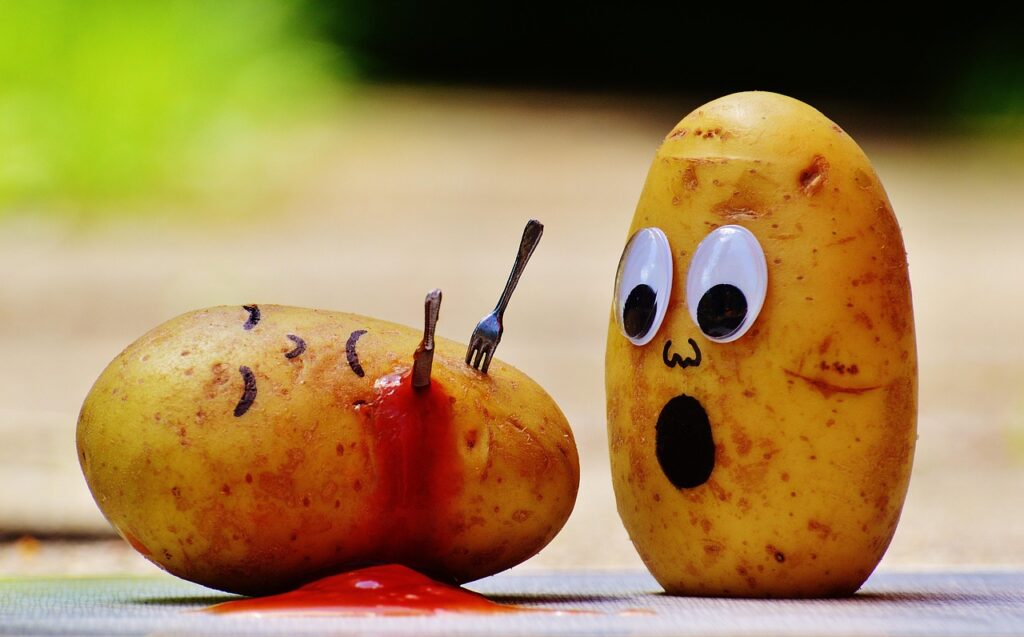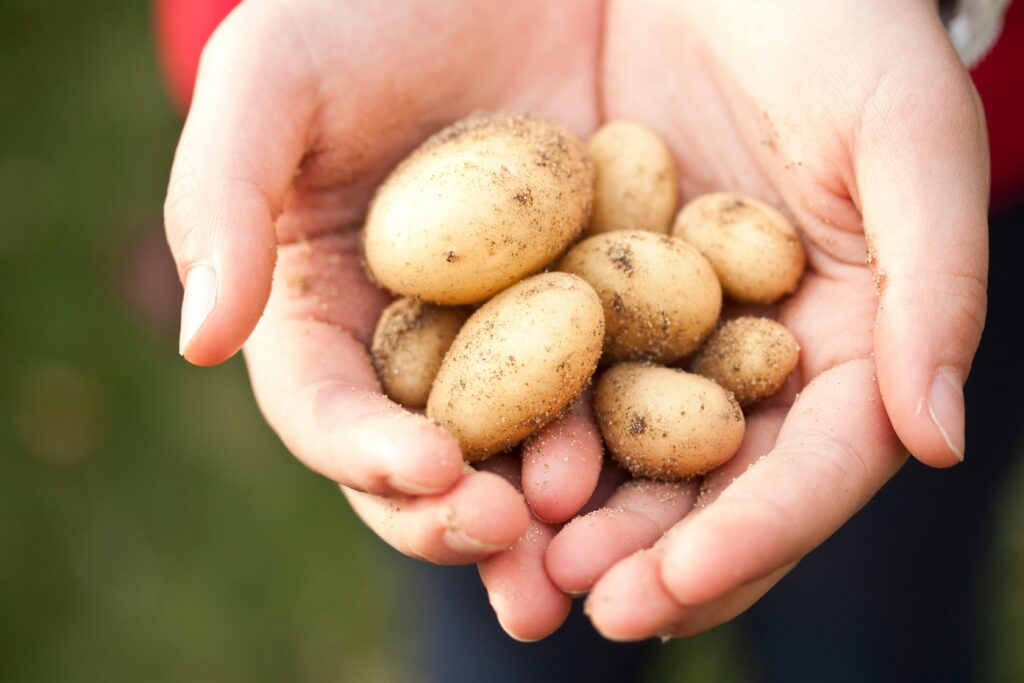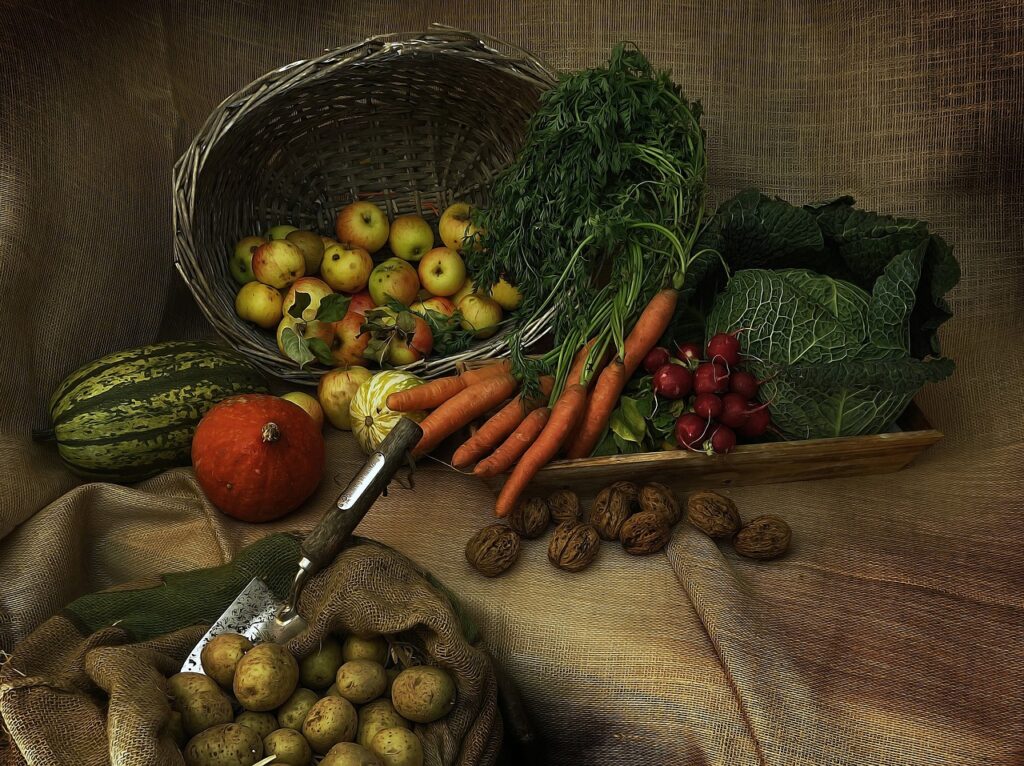Potatoes are one of the most popular foods in the world. From French fries and mashed potatoes to baked potatoes and soups, this humble root vegetable has found its way into countless cuisines. But when it comes to health, potatoes often get a mixed reputation. Some people view them as nutritious and filling, while others label them as unhealthy due to their starch content. So, are potatoes really healthy? Let’s dive deep into the nutrition, benefits, and myths surrounding potatoes.
The Nutritional Value of Potatoes
Potatoes are naturally packed with important vitamins, minerals, and fiber. A medium-sized potato (about 150 grams, skin on) provides:
- Calories: ~110
- Carbohydrates: 26 grams
- Fiber: 2–3 grams
- Protein: 3 grams
- Fat: 0 grams (virtually fat-free)
- Vitamin C: 30% of the Daily Value (DV)
- Potassium: 15% of the DV (more than a banana)
- Vitamin B6: 10% of the DV
- Magnesium: 8% of the DV
Potatoes are also rich in antioxidants, such as carotenoids, flavonoids, and phenolic acids, which help combat free radicals and support overall health.

Health Benefits of Potatoes
1. Rich Source of Energy
Potatoes are primarily composed of carbohydrates, making them an excellent source of energy. Athletes often rely on potatoes as a natural carb source for fueling workouts and recovery.
2. High in Potassium
One of the standout nutrients in potatoes is potassium. Potassium helps regulate blood pressure, supports muscle contractions, and promotes heart health. In fact, a potato contains more potassium than a banana.
3. Good for Digestion
Potatoes provide dietary fiber, especially when eaten with the skin. Fiber aids digestion, prevents constipation, and supports a healthy gut microbiome.
4. Boosts Immunity
Thanks to their vitamin C content, potatoes support the immune system. Vitamin C also plays a role in collagen production, which keeps skin, joints, and bones strong.
5. Naturally Gluten-Free
For people with celiac disease or gluten sensitivity, potatoes are a safe and versatile carbohydrate source.
6. Satiety and Weight Management
Despite being calorie-dense compared to vegetables like lettuce, potatoes are very filling. The satiety index of foods ranks boiled potatoes as one of the most satisfying foods, meaning they can help control hunger and reduce overall calorie intake.

Are Potatoes Bad for You? Common Myths
While potatoes are nutritious, they are often criticized in modern diets. Let’s address some of the most common myths.
Myth 1: Potatoes Make You Gain Weight
Potatoes themselves do not cause weight gain. Weight gain occurs when calorie intake exceeds calorie expenditure. A plain baked potato is low in fat and moderate in calories. The problem arises when potatoes are fried in oil, loaded with butter, or topped with cheese and sour cream.
Myth 2: Potatoes Have “Empty Carbs”
Unlike refined carbs (like white bread or pastries), potatoes are whole foods rich in fiber, vitamins, and minerals. They provide complex carbohydrates that release energy steadily.
Myth 3: Sweet Potatoes Are Always Healthier
Sweet potatoes are often marketed as a healthier option because they are higher in beta-carotene (vitamin A precursor). However, white potatoes have their own advantages, like higher potassium. Both are healthy choices depending on nutritional needs.
Myth 4: Potatoes Are Bad for Blood Sugar
Potatoes have a high glycemic index (GI), which means they can raise blood sugar quickly. However, this depends on the cooking method. Boiled potatoes with skin have a lower GI compared to mashed or fried potatoes. Pairing potatoes with protein, fiber, or healthy fats can also reduce blood sugar spikes.

Healthy Ways to Cook Potatoes
The healthiness of potatoes depends largely on how they are prepared. Here are some healthy cooking methods:
- Boiled or Steamed: Retains most nutrients and avoids added fat.
- Baked or Roasted: Great flavor without excessive oil.
- Air-Fried: A healthier alternative to deep-frying.
- Mashed (with olive oil or Greek yogurt): A lighter twist on classic mashed potatoes.
Unhealthy methods include deep-frying (French fries, chips) or smothering potatoes in butter, cream, or cheese.
Potatoes vs. Other Carbs
How do potatoes compare with other carbohydrate sources like rice, pasta, or bread?
- Calories: Potatoes are lower in calories per gram compared to pasta or bread.
- Fiber: Potatoes contain more fiber when eaten with the skin.
- Nutrients: Potatoes are richer in potassium and vitamin C.
- Satiety: Potatoes rank higher in satiety than rice or bread, making them a good choice for appetite control.
This makes potatoes a nutrient-dense carb source when eaten in moderation and prepared healthily.

Who Should Be Careful with Potatoes?
While potatoes are healthy for most people, some groups should pay attention:
- People with diabetes: Because of the high GI, potatoes should be paired with protein and fiber to minimize blood sugar spikes.
- People on low-carb diets: Potatoes are carb-rich, so they may not fit well into ketogenic or very low-carb diets.
- Those watching portion sizes: Overeating potatoes, especially in fried or creamy forms, can lead to excess calorie intake.
Tips for Eating Potatoes the Healthy Way
- Eat the skin: Most of the fiber and nutrients are in the skin.
- Watch portions: Stick to one medium potato per serving.
- Balance the meal: Pair potatoes with lean protein and vegetables for a complete plate.
- Choose healthy toppings: Opt for olive oil, herbs, or Greek yogurt instead of butter and sour cream.
- Experiment with varieties: Try red, yellow, purple, or fingerling potatoes — each has unique antioxidants and flavors.

The Bottom Line: Are Potatoes Healthy?
Yes, potatoes are healthy when prepared in the right way. They are nutrient-dense, filling, naturally gluten-free, and versatile. The negative reputation of potatoes often comes from unhealthy cooking methods, such as deep-frying or adding heavy toppings.
When enjoyed as part of a balanced diet, potatoes can provide important nutrients like potassium, vitamin C, and fiber. Whether boiled, baked, or roasted, this humble vegetable deserves a place on your plate.



